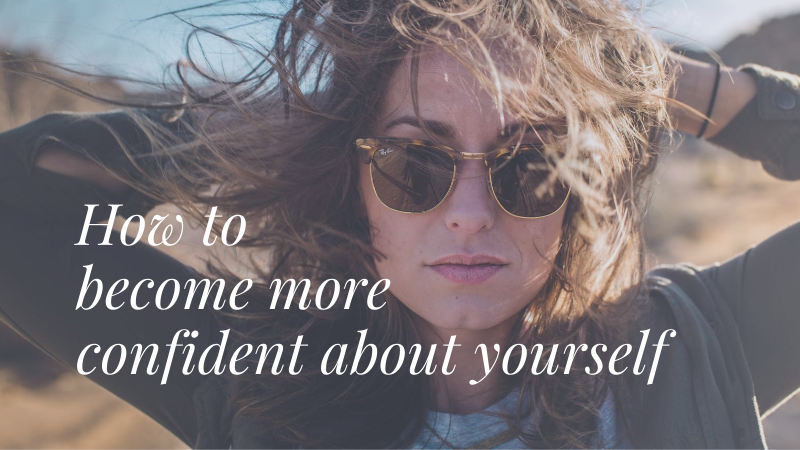Confidence is a belief in oneself, the conviction that one has the ability to meet life’s challenges and to succeed — and the willingness to act accordingly. Being confident requires a realistic sense of one’s capabilities and feeling secure in that knowledge.
Moreover, projecting confidence helps people gain credibility, make a strong first impression, deal with pressure, and tackle personal and professional challenges. It’s also an attractive trait, as confidence helps put others at ease.
Self- confidence; self- efficacy; and self- esteem
Self-confidence is understanding that you trust your own judgment and abilities and that you value yourself and feel worthy, regardless of any imperfections or of what others may believe about you.
Self-efficacy and self-esteem are sometimes used interchangeably with self-confidence, but they are subtly different.
We gain a sense of self-efficacy when we see ourselves mastering skills and achieving goals. However, this encourages us to believe that, if we learn and work hard in a particular area, we’ll succeed. It’s this type of confidence, that leads people to accept difficult challenges and to keep going in the face of setbacks.
On the other hand, self-esteem is a more general sense that we can cope with what’s going on in our lives, and that we have a right to be happy.
The Importance of self- confidence
Self-confidence is important in every aspect of your life, nonetheless, many people struggle to find it. Sadly, this can be a vicious cycle: because people who lack self-confidence are less likely to achieve the success that could give them more confidence.
In addition, confidence is not something that can be learned like a set of rules, confidence is a state of mind. For example, positive thinking, practice, training, knowledge, and talking to other people are all useful ways to help improve or boost your confidence levels.
Confidence comes from feelings of well-being, acceptance of your body and mind (your self-esteem), and belief in your own ability, skills, and experience. Confidence is an attribute that most people would like to have.
People WHO ARE CONFIDENT:
- Do what they believe to be right, even if others mock or criticize them for it.
- Willing to take risks and to go the extra mile to achieve better things.
- They admit their mistakes and learn from them.
- Accepting compliments graciously.
People’s Behaviour with lack of self- confidence:
- Govern their behavior based on what other people think.
- Stay in their comfort zone, fearing failure, and avoiding risk.
- Work hard to cover up mistakes.
- Dismiss compliments.
The principles of how to be more confident
Tony Robbins believes that if you want to learn how to be more confident, then you must be willing to change your state. Your state is essentially your mood at any given time of day. Your mood is influenced by how you feel about yourself at that point in time. However, you can change your state at any time – no matter what’s going on around you. For instance, here are some principles of confidence, which anyone can use to their advantage.
Body Language – eye contact, up-straight posture, change your physiology.
Positivity – think positive, change your focus on more positive outcomes, replace the negative thoughts with the positive ones, what you focus on becomes your reality.
Growth Mindset – confidence doesn’t come from your outward achievements- it comes within you. If you fail, pick yourself back up and try again. Confidence is a skill that you can learn.
Take pride in all your achievements – no matter what was your goal, if you accomplished it, take pride in it. Because acknowledging your accomplishments will make you feel good about yourself.
Use Goal Visualization – it is a powerful tool to wield on the road to understanding how to be confident in yourself. Think of yourself succeeding.
Appreciate yourself – take a moment and appreciate yourself and your body. By practicing gratitude you will be closer to a living a happy life.
Improve your self-talk – your inner monologue has an important effect on your confidence. Catch yourself thinking negatively about yourself and replace it with more kind and positive thoughts.
Love yourself first – although many people develop a lack of confidence early in life and unconsciously adopt limiting beliefs about what they are capable of. This is self-sabotage. Start taking a more kind approach towards yourself. Start liking yourself. You deserve it!
Live in the present – this can be a challenging task, however, when you live fully present, you appreciate what you have without worrying about what’s going to happen. Free your mind- be here and now.

